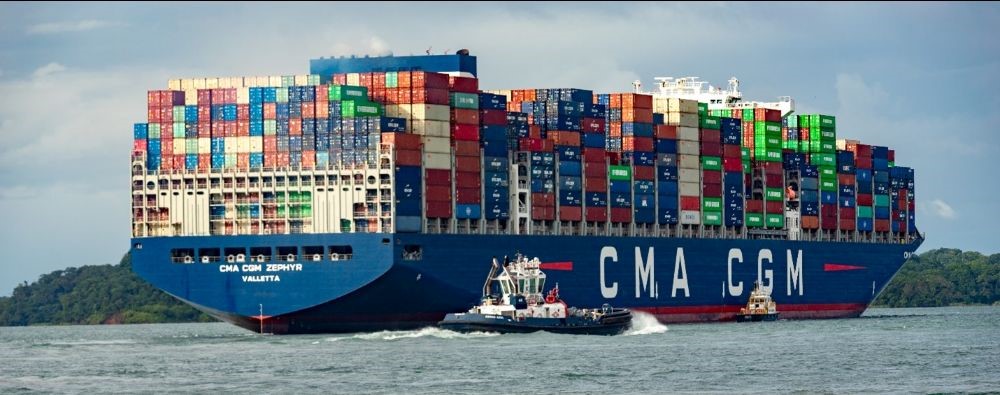
First, it was Mediterranean Shipping Company (MSC) and now it appears that French shipping giant CMA CGM is on track to leap past Maersk to become the world’s second-largest container carrier according to a new market analysis from Alphaliner. After having led the industry’s consolidation, the Danish shipping company’s strategic focus has recently shifted from growth to integration and evolving to a logistics company.
Maersk currently stands firmly in second place in the rankings based on capacity. The company shows a total fleet of 682 vessels and a capacity of over 4.1 million TEU. By comparison in January 2022, when MSC claimed the top spot, Maersk was reported to have a fleet of 738 vessels with a capacity that was nearing 4.3 million TEU.
CMA CGM remains a distant third currently with a fleet of 625 ships with a total capacity of just under 3.5 million. MSC, by comparison, has used the past 18 months to widen its lead over both of the competitors with little sign of slowing down. In the current update, Alphaliner calculates MSC’s fleet was grown to 770 ships with a total capacity approaching 5.2 million TEU.
The companies’ divergent strategies highlight the emerging shifts in the industry with Alphaliner analyzing the orderbook held by the major carriers. CMA CGM like other major carriers initially used acquisitions to propel its growth taking over Neptune Orient Lines which in turn had acquired APL. But now, CMA CGM has grown a massive orderbook that is now rivaling MSC in size. CMA CGM also has a large charter book focused on mid-sided vessels.
“The French line’s orderbook stands at 35.5 percent of the carrier’s existing fleet capacity,” highlights Alphaliner. It took CMA CGM seven years (2009 to 2016) to go from 1 million to 2 million TEU. They now have 1.24 million TEU on order according to Alphaliner due for delivery by 2026. In the next 18 months alone to the end of 2024, they highlight the French carrier will receive 500,000 TEU of new capacity. Subject to some conjecture on how much of the volume might be replacement tonnage or if CMA CGM will release some of its extensive charter fleet, Alphaliner notes the company is on course to reach 4.73 million TEU by 2026.
Asked two years ago about the coming shifts in the leaderboard, then CEO of Maersk Soren Skou told Bloomberg it was not important. He emphasized strategic direction. Maersk appears to be forgoing large capacity increases for its ocean shipping group instead focusing on fleet replacement and decarbonization efforts. The Danish company has just under a 10 percent capacity increase on order, or 33 ships with a capacity of just over 400,000 TEU Alphaliner highlights. Maersk has previously said that orders such as its 24 methanol-fueled containerships would be replacements for aging vessels. Alphaliner estimates at maximum Maersk would reach 4.54 million TEU meaning it would be four percent behind CMA CGM.
MSC continues to be the unchallenged leader as it continues to build its position. The company has another nearly 1.5 million in TEU on order. At a current capacity exceeding 5.1 million TEU, Alphaliner has previously highlighted that MSC will likely pass 6 million TEU.
The Swiss-based carrier has gone big with the industry’s largest capacity ships but mostly is investing in conventional fueled ships near term. They have also been an aggressive buyer in the secondhand market. CMA CGM was a pioneer leading the industry with large investments into LNG-fueled ships. In April 2023, it was reported CMA CGM had placed a further order for 16 ships valued at over $3 billion making it the largest order ever booked by CSSC. As part of the order, CMA CGM was also reported to be investing in its first large class of dual-fuel methanol vessels.
Follow us on Facebook/ twitter















